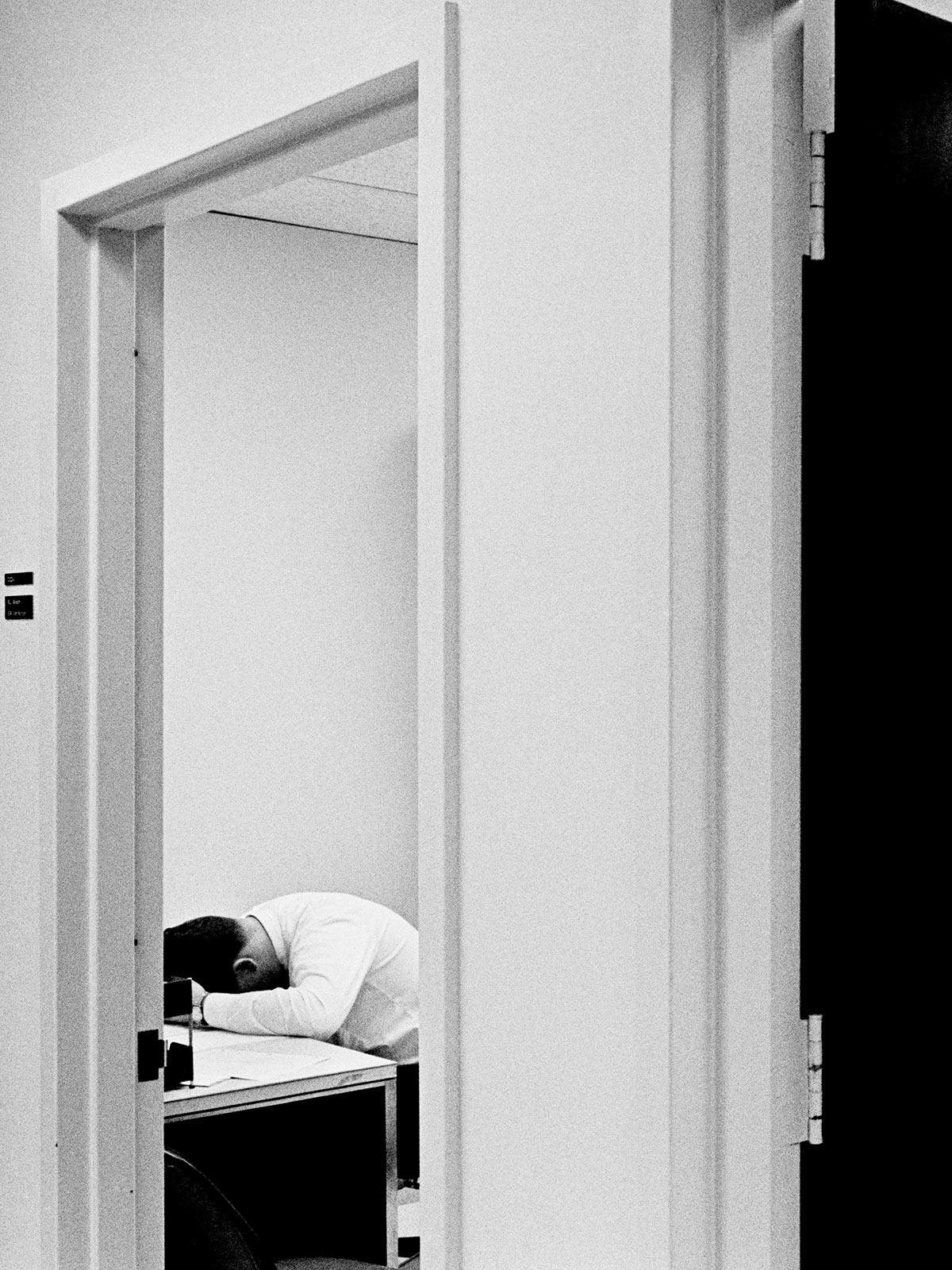Experts say long hours are wrecking havoc on our mental health—so why do we continue to fetishize the hustle?
For entrepreneurs, the recipe to success is straightforward. Skip meals, cut down on sleep, relinquish your social life—do whatever it takes to hustle. To hustle is to work hard, but to be a hustler is to work harder than hard. It means to put your work before your life, to “move fast and break things”, as Facebook CEO Mark Zuckerberg would put it. In Silicon Valley, and across the increasingly fast-paced country that revolves around it, it’s a common belief that being a hustler is the one, surefire way to get to the top.
But at what price? The Social Network, the controversial 2010 film about Zuckerberg’s rise to fame, tells the story of a power hungry, unhappy man, who built a multi billion dollar company on ruthlessness. Elon Musk, the creator of Tesla, and one of Silicon Valley’s most ambitious entrepreneurs, is infamously unhappy with the “excruciating” work ethic it takes to keep his company afloat. To be a bonafide hustler might lead to higher chances at wealth, but it is also correlated with unhappiness.
Still, it seems to be what we all want. As the world gets more connected, and media makes us more aware of competition than ever before, the need to make ourselves indispensable in a world where nobody is seems more prevalent than ever. The harder you work, the more likely you are to survive. It then makes sense to assume that the road to happiness consists in doing something you love, and giving it your all.
The reality is that though the push for self-sufficiency and passionate work lives might improve our overall health and life satisfaction, if taken to an extreme, it can also do the opposite. We idolize hustlers because they latch on to their dreams and work themselves dry to get them. In doing so, not only do we perpetuate the anxiety-ridden, sleep deprived lifestyles they lead — we idolize patterns that endanger mental health.
At Web Summit, one of Europe’s largest tech conferences, held Nov.5-8, Reddit founder Alexis Ohanian called out what he calls “hustle porn”—the fetishization of extremely long working hours—as “one of the most toxic, dangerous things in tech right now”. The same rings true for other industries. Hustle porn comes from the idea that “unless you are suffering, grinding, working every hour of every day, you’re not working hard enough”. This work-till-you-drop mindset can lead to dramatically unbalanced lives lacking in sleep, exercise, and social contact, all things that psychology and science alike deem crucial to health.
The hustle ethos, like anything when taken to an extreme, is dangerous. “Take care of yourself because you’re not getting uploaded to the cloud anytime soon” says Ohanian. “And when things do get hard, which they will, you especially need to prioritize your well-being.”



















